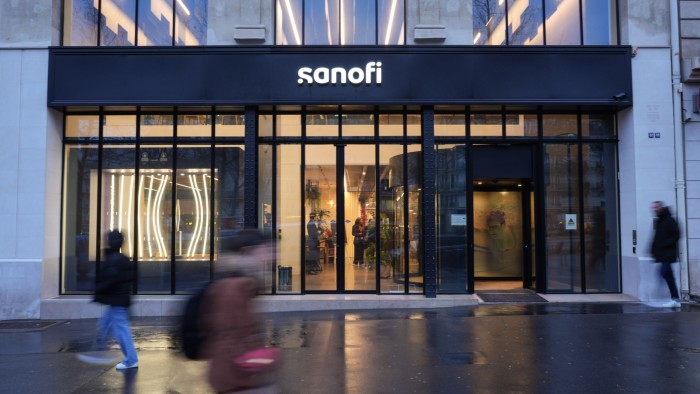Unlock the Editor’s Digest for free
Roula Khalaf, Editor of the FT, selects her favourite stories in this weekly newsletter.
Biotechnology companies do two things, in an ideal world: make drugs that improve patient’s lives, and sell themselves — in whole or in part — to Big Pharma. This second element has been difficult to execute of late, because of high interest rates and uncertainty over the direction of US healthcare policy. Two chunky deals inked on Monday show that, when conditions are right, biotech investors can still win ample payouts.
Sanofi, the French pharmaceuticals giant, said it had agreed to buy Blueprint Medicines, which makes the world’s only approved treatment for a rare immunological disorder, for $9.1bn in cash, which increases to $9.5bn if some milestones are met. Bristol-Myers-Squibb, meanwhile, will pay BioNTech $3.5bn for 50 per cent of an immunotherapy cancer drug currently in trials, rising to $11.1bn if conditions are met.
While the two deals involve drugs at different stages, and tackling different conditions, they both bring generous terms to the sellers. Blueprint’s investors get a 27 per cent premium to Friday’s share price, which had already run up 15 per cent this year. BioNTech, meanwhile, is getting a valuation potentially as high as $22bn for an asset it acquired for less than $1bn in November 2024. Its stock rose almost 20 per cent on Monday morning.
Both of the drugs are in hot therapeutic areas, which might explain how these deals got done in a tough market. That’s particularly true for BioNTech’s compound. Helping the immune system to better target cancer has been an extraordinarily successful strategy. The granddaddy of such drugs, Merck’s Keytruda, had nearly $30bn of sales last year and faces the expiry of key patents in 2028.
Now a new generation of drugs — of which BioNTech’s is one — looks to combine immune-oncology with other mechanisms, such as cutting off blood supply to cancer. Pfizer only last week struck a licensing agreement in this space with Chinese biotech 3SBio, for an upfront payment of $1.25bn, plus a contingent payment of a further $4.8bn. BioNTech’s drug, the companies hope, will be approved to treat multiple types of tumour.
Large drugmakers, for their part, need to bolster their growth prospects. BMS has large patents edging towards their expiry date. And while Sanofi may not have quite the same incentive to buy rivals, disappointing results for one of its homegrown drugs on Friday highlight the wisdom of diversifying bets.
Biotech remains challenged. The S&P 500’s biotech sub-index is down more than 10 per cent this year, while the broader index is flat. But investors still have a chance of picking winners. When a company with an exciting drug meets one with a hole in its pipeline, there are few impediments to the healthy circulation of money.
